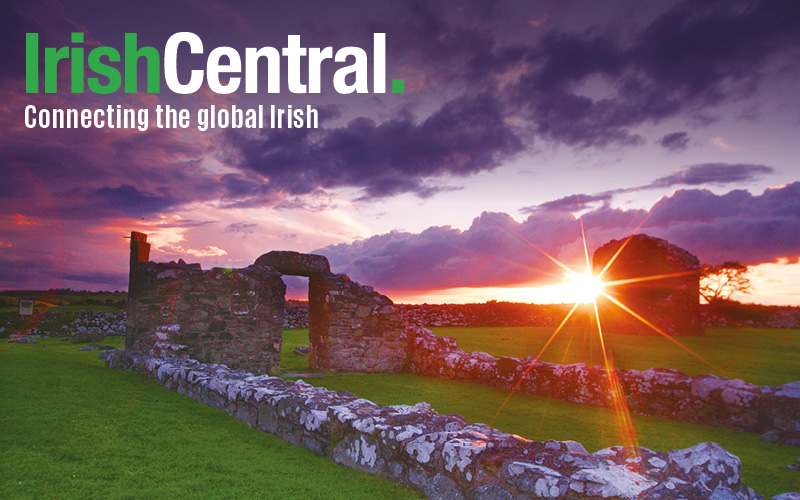| The Dubliners at Christ Church during TradFest |
And one of the earliest in the year is the award-winning Temple Bar Trad Fest that occurs on the last weekend of January. Now in its seventh year, it already enjoys a reputation as one of cutting edge festivals in the capital city.
Last year it attracted 60,000 people to its weekend events in the cultural and tourist heart of Dublin, and this year an estimated 12,000 tourists from outside Ireland were drawn in with a spend of around six million much needed euro in the wintry off-season according to the Irish Independent.
Last weekend I paid a flying visit to Dublin City while the fest was underway and sampled a little of the atmosphere and performances on view around the historic area between the Liffey banks and Dame Street known as the Temple Bar district.
With 200 performances filling 17 venues over the six day festival, there would be no shortage of events to see but time only allowed me to take in three concerts over a Thursday and Friday evening due to another commitment.
Artistic director Kieran Hanrahan and festival manager Wendy Grace, part of the team that stitches the festival together and keeps it running smoothly, were invaluable in assisting me, especially when a very hot ticket for the first of two special 50th anniversary shows honoring the Dubliners was concerned.
Just a few hours after landing in Dublin I made my way to Temple Bar to hear the veteran singer-songwriter Ralph McTell (40 years on the road) in Christ Church Cathedral, Dublin’s oldest building.
Used last year for the first time in the Temple Bar Trade Fest, the Church Of Ireland edifice dates back a thousand years and made for a dramatic venue with its gothic vaulted ceiling bathed in an array of colored hues hovering over the congregational concert audience as a backdrop.
McTell is a marvelous guitarist and folksinger cut from the time-tested cloth of Woody Guthrie, one of his idols, as well as the Southern blues masters like Sonny Terry and Brownie McGee.
I was well-aware of his two well-known classic creations “Long Way from Clare to Here,” first made famous by the Furey Brothers, and the stunningly perfect folk song “Streets of London” depicting the hardscrabble life of the folks who occupy the song.
As is often the case, no matter how many other people you hear singing iconic songs like these it is always a revelation to hear an “original” version from the source.
A very engaging performer, McTell told us of the provenance of the song title “Long Way from Clare to Here” based on his own experience of the Irish laborers who came over to England to work, especially one young man who worked alongside McTell in a trench doing construction work. The contrast of the pastoral West Clare versus the teeming metropolis of London plays out in the song so brilliantly captured in the title.
The following night was a celebration (so popular it required two nights) marking the 50th year of the quintessential Dublin ballad band the Dubliners.
It seemed a necessary pilgrimage to start the evening off with a pint of plain at O’Donoghue’s on Merrion Row where the lads first met up in 1962 and lived the life through song and story as the hometown parcel of rogues. Contemporaries of the Clancy Brothers and Tommy Makem, the Dubliners seemed to be the preferred balladeer band in Ireland and Europe who found the Clancys a bit too stage Irish. Or perhaps the enhanced instrumental sound of fiddler John Sheehan and banjoist Barney McKenna added the traditional music element that helped them loom larger over here.
America, though, was never a place where they really made their mark, and when The Ed Sullivan Show wouldn’t let them perform “Seven Drunken Nights,” their hugely popular but bawdy hit (nor would RTE for that matter), it was elsewhere you had to find them.
But led by the voices of the late Luke Kelly and Ronnie Drew, they were well worth seeking out for live shows or recordings.
That legacy has kept the Dubliners in business for many years as Jim McCann and Paddy Reilly joined the colorful troupe as lead singers along with Sean Cannon, Eamonn Campbell and now Patsy Watchorn.
Barney McKenna is the last of the founding members, a trail blazer on trad banjo playing who also can still sing with a lot of heart.
Watching the memorable evening unfold in Christ Church Cathedral through the Dubliners’ canon proved a powerful symbol of the impact they had on Ireland and Dublin in the rare ould times.
Their musicality was further highlighted by Sheehan’s compositions “Marino Casino” and “Christ Church” performed by a string quartet featuring himself and guest artists Sean Keane and Maire Breathnach on fiddles and Liam Martin on cello.
Just down Dame Street lay the Georgian gem of a City Hall which was employed for the first time in the festival.
Its rotunda welcomed the likes of Tommy Sands, Edel Fox, Mick O’Brien, Moya Brennan, Frankie Gavin and, on the last night, a tribute and benefit for the traveling folk musician Pecker Dunne.
The scope and the scale of the Temple Bar Trad Fest is growing every year along with its popularity, and it is a vibrant example of why cultural tourism is the buzz phrase oft-repeated when talking about a recovery in Ireland. Next time my visit won’t be so short.
The Dubliners launch TradFest 2012 at Dublin's City Hall:
The Dubliners at Christ Church on RTE:




Comments